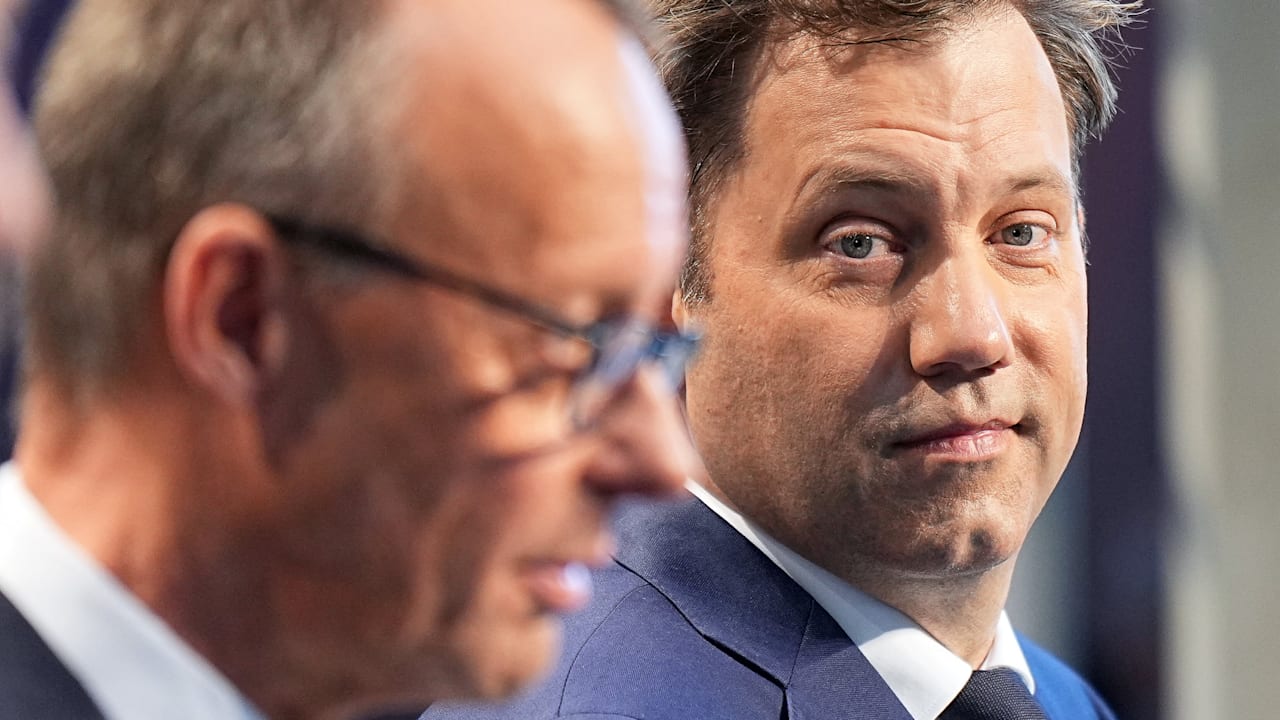Klingbeil: Cracks in the Koa Promise – Tax Hikes on the Horizon?
Editor’s Note: Concerns regarding the SPD's Koa promise and potential tax increases have emerged today. This article analyzes the situation and its potential implications.
Why This Matters: The Shifting Sands of German Politics
The SPD's "Koalition der Zukunft" (Coalition of the Future) – built around the ambitious "Koa" project – is facing increasing scrutiny. Recent statements by SPD General Secretary Lars Klingbeil regarding potential tax increases have ignited a firestorm of debate. This development holds significant implications for German voters, the economy, and the stability of the ruling coalition. Understanding the nuances of this situation is crucial for anyone interested in German politics and economics. This article will dissect Klingbeil's comments, explore the underlying issues, and analyze the potential consequences.
Key Takeaways
| Point | Explanation |
|---|---|
| Koa Project Uncertainties | Klingbeil's remarks suggest challenges in fully realizing the Koa project's goals. |
| Tax Increase Possibility | Increased tax revenue might be necessary to fund the Koa project's ambitious plans. |
| Coalition Stability at Risk | This debate could strain the relationship within the ruling coalition. |
| Economic Impacts | Tax increases could impact consumer spending and business investment. |
Klingbeil: Cracks in the Koa Promise
The SPD's "Koa" project, a cornerstone of their coalition agreement, aims to [insert specific goals of Koa project here, e.g., modernize Germany's infrastructure, transition to renewable energy, etc.]. However, Lars Klingbeil's recent statements have cast doubt on the feasibility of achieving these goals without significant additional funding. His suggestion of potential tax increases to finance the ambitious plan has sparked immediate controversy.
Key Aspects of the Koa Project and its Challenges
The Koa project encompasses numerous complex initiatives, including [List and briefly describe 3-4 key aspects of the Koa project. E.g., digital infrastructure upgrades, investments in renewable energy, reforms to the social welfare system]. Each aspect presents unique challenges, from securing sufficient funding to navigating bureaucratic hurdles and ensuring public acceptance.
Detailed Analysis of Klingbeil's Statements
Klingbeil's comments, while not explicitly endorsing specific tax hikes, acknowledged the need for additional financial resources to realize the Koa project's full potential. This has raised concerns among coalition partners and the public, who are already facing rising living costs. The ambiguity of his remarks leaves room for various interpretations, fueling speculation and uncertainty. [Include specific quotes from Klingbeil if available, with proper citation]. The lack of concrete proposals further exacerbates the situation.
Interactive Elements
The Fiscal Implications of the Koa Project
The Koa project requires substantial investment. Understanding the financial implications is critical. Key elements to consider include: the total cost of the project, potential funding sources (beyond tax increases), and the potential economic impact of increased taxation. A detailed cost-benefit analysis is needed to assess the project’s long-term viability.
Public Opinion and the Koa Project
Public support for the Koa project is crucial for its success. However, the prospect of tax increases could erode this support, especially given existing concerns about affordability. [Include relevant polling data or public opinion surveys if available]. The government needs to effectively communicate the benefits of the project and address public concerns about the potential tax implications.
People Also Ask (NLP-Friendly Answers)
Q1: What is the Koa Project?
A: The Koa project is the SPD's ambitious plan to [briefly explain Koa's main objectives].
Q2: Why is Klingbeil's statement causing concern?
A: Klingbeil's suggestion of potential tax increases to fund the Koa project raises concerns about increased costs for citizens and potential strain on the ruling coalition.
Q3: How might tax increases impact the German economy?
A: Tax increases could dampen consumer spending and business investment, potentially slowing economic growth.
Q4: What are the alternatives to tax increases for funding the Koa project?
A: Alternatives include exploring public-private partnerships, optimizing existing budget allocations, or seeking EU funding.
Q5: What is the likelihood of tax increases being implemented?
A: The likelihood is currently uncertain, as detailed proposals haven't been presented. The ongoing debate within the coalition will determine the final outcome.
Practical Tips for Understanding German Politics
- Follow reputable news sources: Stay informed through reliable German and international news outlets.
- Analyze policy proposals: Critically examine government policy documents and proposals.
- Engage in respectful political discourse: Participate in discussions to understand different perspectives.
- Monitor public opinion: Pay attention to polls and surveys to gauge public sentiment.
- Understand the coalition dynamics: Familiarize yourself with the composition and relationships within the ruling coalition.
Summary (Zusammenfassung)
Lars Klingbeil's comments regarding potential tax increases to fund the ambitious Koa project have introduced significant uncertainty. The debate highlights the challenges of balancing ambitious policy goals with the need for fiscal responsibility and public acceptance. The situation's evolution will significantly influence the German political landscape and economy.
Closing Message (Schlussbotschaft)
The future of the Koa project and the German economy hangs in the balance. This ongoing debate underscores the complex interplay between ambitious political goals and their real-world economic and social consequences. Stay informed, engage in thoughtful discussion, and hold your elected officials accountable.
Call to Action (CTA)
Stay updated on this developing story by subscribing to our newsletter! Share this article with your network to spark discussion and help inform others. [Link to newsletter signup]

